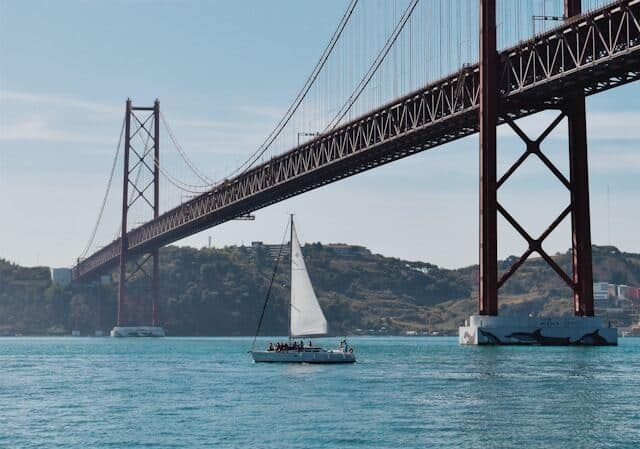Updated: July 4, 2025
Buying property in Portugal is highly sought after by international investors, due to Portugal’s 300+ days of sunshine a year, high standard of living, thriving property market, and excellent education and healthcare systems. Increased demand amongst foreign investors and expats has sparked a boom in the Portuguese property market.
The buying process in Portugal is largely straightforward, and foreign buyers enjoy the same rights as Portuguese citizens when it comes to buying and owning property in Portugal. These are two of the many perks that make the prospect of owning a home here even more appealing.
In this complete guide to buying property in Portugal, we’ll provide key insights to help you buy with confidence, delving into the steps involved, legal requirements, costs, and practical tips and advice for an easy purchase.
Why buy property in Portugal?
Portugal’s real estate market has experienced significant steady growth and has become an attractive and profitable investment option in recent years. Factors such as the country’s stable economy, affordable prices, and high quality of life have contributed to its appeal among both domestic and foreign buyers.
Ten reasons to buy property in Portugal
- Invest in a dynamic, growing real estate market with significant investment return potential
- Low cost of living compared to other countries in Western Europe
- Excellent climate with incredible summers and mild winters
- Robust infrastructure, with world-class education and healthcare services
- A safe place to live – seventh safest country in the world, according to the 2025 Global Peace Index – and with a high level of political stability
- The Portuguese, in general, speak excellent English (Portugal places sixth on the Global English Proficiency Index, ahead of Denmark, Germany, and South Africa)
- Incredible and diverse gastronomy (Lisbon holds the crown for Europe’s best culinary city)
- Cultural and recreational activities galore, and a world-class location for surfing and golfing
- Festivals and events throughout the year
- No restrictions on foreign property ownership
Can you buy property in Portugal as a foreigner?
The short answer is yes! One of the great advantages of buying property in Portugal is that there are no restrictions on foreigners owning property in Portugal. The Portuguese government actively encourages foreigners to invest in real estate in Portugal. A foreigner can purchase property without needing to be a resident or citizen. However, non-residents will need a Portuguese tax identification number (NIF) and are recommended to open a Portuguese bank account.
Non-Portuguese nationals will have the same rights as locals when it comes to buying and owning property, including land, with the property buying process designed to be easy to navigate and transparent, making it straightforward for international buyers to buy property in the country.
Owning property in Portugal does not automatically grant you residency. You will need to explore visa options if you plan to live in Portugal long-term and get a residence permit. Consider the D7 Visa for retirees, the D2 Visa for entrepreneurs, the Golden Visa for investors, the Digital Nomad Visa for remote workers, or other options depending on your circumstances.
Can US Citizens buy property in Portugal?
Yes, buying property in Portugal as an American, you will face no restrictions, and the process is straightforward. Non-EU citizens have the same rights as Portuguese citizens when it comes to buying and owning property, whether for personal use, rental income, or investment.
The Portuguese government encourages foreign property ownership in Portugal, and, overall, buying real estate in Portugal as an American is largely straightforward, although it is crucial to understand the real estate market and the steps involved, potential pitfalls, and tax implications. You will need to get a Portuguese NIF number, and, as a US citizen, you will need to have a fiscal representative.
If you would like to live in the country for more than three months (in a six-month period), you will need to get a residence permit. Make sure you are aware of the Schengen 90/180 rule, which limits the time non-EU citizens can stay in the Schengen area (including Portugal) without a visa.
Portuguese Real Estate Market Market Overview
Portugal’s real estate market offers a wide range of properties, from affordable country homes to luxury villas, making it attractive for investment and relocation. The country is known for its relatively low cost of living compared to many Western European countries, including the US, making owning property in Portugal more accessible.
Property prices in Portugal
The property prices shown below provide an overview of the Portuguese real estate market in the Lisbon and Porto areas, plus Faro, the capital of the Algarve. Property prices will vary depending on the type of property and location. If you choose to buy outside the city center or further from the coast, you will find that property prices generally fall considerably.
City | Lisbon City | Cascais | Oeiras | Porto City | Matosinhos | Vila Nova de Gaia | Faro |
Property price in 2024 (€/m2) | €6,934 | €7,260 | €5,245 | €4,883 | €3,884 | €3,759 | €3,701 |
Property prices are from the Portuguese real estate databank, Confidencial Imobiliário.
Which areas are the most expensive to buy property in Portugal?

The most expensive regions for property acquisition in Portugal are Lisbon and parts of the Algarve. Setúbal, in proximity to Lisbon, can also be a high-priced location for real estate in Portugal, as can luxury houses in Comporta, Melides, and Troía on the Southwest coast.
Similarly, in the Algarve, buying property in cities like Loulé and Lagoa, you can expect to find relatively expensive properties. When it comes to luxury residences and apartments, Vale do Lobo, Quinta do Lago, and Vilamoura emerge as the top choices in the Algarve.
What is the cheapest place to buy property in Portugal?
So, how much is a house in Portugal? This depends hugely on location. For cheap properties and top bargains, you should head to the interior parts of the country. The north of Portugal and the central region of Portugal are amongst the most affordable areas, with average asking prices standing at €1,903 and €2,098, respectively. In the Alentejo, you’ll also find stunning properties at very reasonable Portugal house prices. The average asking price stands at €3,181, with some areas being much cheaper than others.
Types of Property in Portugal
As Portugal’s property market continues to thrive and grow year-on-year, you’ll find a wide range of properties across the country to suit various preferences and budgets. Whether you’re looking for a charming city apartment, a cozy semi-detached house, a coastal villa, a rustic farmhouse, or a modern condominium, there are options to cater to different lifestyles and investment goals. Portugal’s luxury properties and affordable country homes are standouts in the European and global markets.
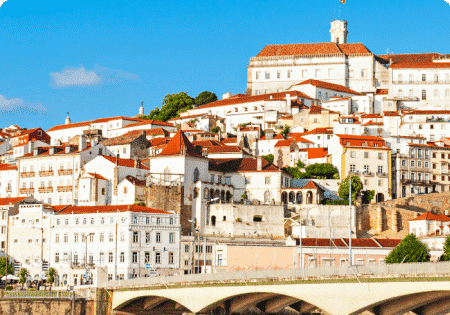
- A casa or moradia is a typical detached home, with many having their own patio or backyard.
- A casa geminada is a semi-detached house.
- Condomínios (or condos for short) is an individual apartment unit with common spaces. Usually, owners will need to pay a monthly condo fee and, in return, will secure a premium standard of care. Many condos will come with gyms, swimming pools, and other amenities, and are particularly common in the Algarve.
- Quintas are rustic houses or farms, and you’ll even find many luxury quintas in Portugal that provide more exclusive amenities. Quintas are usually found in the countryside, although you can also find a few in the suburban areas of cities.
- Terreno translates to land in Portugal, and many foreign buyers opt to snap up land to build their dream home from scratch. If you venture down this route, it is a good idea to check with the city hall (Câmara Municipal) to double check that the land is registered for residential use as opposed to land used for agricultural purposes.
Apartment terminology in Portugal
When searching for an apartment in Portugal, you will come across terms such as T0, T1, T2, T3, etc. This basically indicates the number of rooms the property has. For example, a studio apartment would be referred to as a T0, a one-bedroom apartment would be referred to as a T1, and a three-bedroom apartment would be a T3.
Where to Buy Property in Portugal
Portugal offers a range of beautiful locations for expats and foreign investors seeking to buy property in the country. The perfect spot for you will depend on your lifestyle preferences, budget, and investment goals.
Firstly, determine which area of Portugal appeals to you. Each region and city will have its own unique charm and perks, so take the time to ensure you get to know the country and the diverse range of locations on offer. Here are some of the best places to consider.
Lisbon
Lisbon, the Portuguese capital, manages to blend innovation and tradition together perfectly. This mesmerizing city effortlessly embraces the past and the present, enchanting all who grace its streets.
From the cobbled streets of Alfama to the dynamic neighborhood of Baixa, with boutique shopping and buzzing nightlife, you’ll find something for any buyer. Families should consider Estrela, with its wide open parks, ideal for spending time outdoors. You also have Parque das Naçōes, with its futuristic cable cars, top-quality restaurants spilling out on the street, and fabulous views of the River Tejo.
You can read our article, Buying Property in Lisbon, for more information.
Algarve
Does the Algarve need any introduction? This sublime part of southern Portugal is renowned for its stunning coastline, golden beaches, and excellent climate. It has become somewhat of a mecca for tourists, expats, and retirees seeking a sunny, beachside lifestyle. Particularly in peak tourism season, the coastal towns in the region come alive with internationals from all over the world seeking a slice of the Algarve.
Besides its natural beauty, the Algarve offers world-class golf resorts, charming fishing villages, and a lively social scene. Cities like Faro, Albufeira, and Lagos are particularly popular among property buyers. For affordable properties in the region, consider Monchique, Aljezur, and Alcoutim.
If you are thinking about moving to the Algarve, it shouldn’t take you long to settle in. There is an array of activities to get involved in, such as water sports, yoga classes, and cooking classes, where you’ll quickly be able to get to know fellow expats.
For prospective buyers considering the Algarve, our article, Buying Property in Algarve, Portugal, has you covered, running over the intricacies of how to buy a house in Portugal in the south of the country.
The second biggest city of Portugal, Porto, has evolved quite drastically over the years, now competing with Lisbon as the country’s most talked-about city. Yes, Porto can certainly hold its own, with its charming narrow streets, fabulous riverside restaurants and cafes, and boutique stores.
If you are looking for beautiful beaches, you’ll find many close to Porto and many activities to get involved in, such as surfing, yoga, or even cooking classes. Both local and foreign investors will find long-term rentals to be an attractive option, with many students, remote workers, and young professionals creating demand for this type of accommodation in the city, leading to high rental yields.
If you are considering buying Portuguese property in this charming city, our article, Buying Property in Porto, Portugal, will provide you with everything you need to know.
Cascais
Located just a short drive from Lisbon, Cascais is a charming coastal town that has become synonymous with luxury living.
Its beautiful beaches, excellent restaurants, and thriving cultural scene make it a favorite among affluent residents and tourists alike.
Cascais also boasts top-notch golf courses (Penha Longa Resort golf course is a must-visit for keen golfers), marinas, and a relaxed ambiance, making it an ideal place for those seeking a more refined and laid-back lifestyle.
You can find out more in our article, Buying Property in Cascais.
The Silver Coast
The Silver Coast in Portugal is a captivating region renowned for its pristine beaches, historic towns, and vibrant culture. Situated on the Western Coast between Lisbon and Porto, the Silver Coast is characterized by rugged cliffs, golden sands, and charming fishing villages.
If you are looking for a more authentic part of the country, to truly enjoy the local life and embrace staggeringly beautiful landscapes, then the Silver Coast could be the place for you.
If you’re thinking about buying property in this area, look into Nazaré, where you’ll find stunning beaches and world-famous surfing waves, a favorite among expats. Óbidos offers a picturesque medieval setting with a vibrant local culture. Peniche is another great option, famous for its fishing heritage, rugged coastline, and some of the best surfing spots in Europe.
This list of the best places to buy property in Portugal is by no means exhaustive. Other stand-out locations include the Alentejo, with its green rolling hills, Comporta and Melides, for luxury properties in the heart of nature, and the autonomous islands of Madeira and the Azores.
Where to Look When Buying Property in Portugal
What is the best way to go about finding your ideal property in Portugal? The real estate market in Portugal is fragmented and there is no one place like a Zillow Portugal to find all the properties available, which can make the process of going it alone, using online sites, difficult.
As such, when buying property in Portugal as a foreigner, it’s always a good idea to consult with an experienced real estate professional. A property expert will provide full market access in addition to making the process of buying a home in Portugal much easier, guiding you from sourcing your ideal property through to acquisition. They will also answer any questions you may have, such as the pros and cons of buying property in Portugal.
Bear in mind that a strategic move can be to work with a buyer’s agent. This is because, in Portugal, real estate agents work on behalf of the seller. Working with a buyer’s agents means that there is no conflict of interest, as they work solely on behalf of you, the buyer.
Make sure that the real estate or buyer’s agent you choose is licensed. The most credible license is the AMI License, issued by IMPIC. This license is required for property agents to conduct real estate mediation activity. You can find out more on the Portuguese government website.
Required Documents to Buy Property in Portugal
Buy House Portugal: What documents do I need to buy property in Portugal?
NIF number: Tax identification number
- Photo ID: A valid identification document that verifies your identity. This can be a passport or Portuguese ID card (Cartão de Cidadão)
- Contrato Promessa de Compra e Venda (CPCV) or Promissory Agreement: The buying contract or property deed that outlines the terms and conditions of the property purchase.
- Portugal Energy Certificate: This document provides information about the energy efficiency of the property and must be presented to you by the seller.
- Imposto de Selo: The stamp duty payment, which is a tax required by the Tax Authority for property transactions.
- Caderneta Predial: The purchase and sale of property needs to be registered with the land registry. This certificate contains information about the property, including its location, boundaries, and registered owner. The land registry certificate serves as evidence of the legal status of a property as of the date of issuance. The land registry certificate compiles and describes the current registrations applicable to that property.
We recommend working with an independent lawyer who will be able to assist you with determining the documents you need. Lawyers offer sound legal advice about your purchase and will also complete a thorough due diligence on the condition of your property, and conduct legal and title checks, to avoid any hidden issues. While not mandatory, it’s highly recommended to conduct a thorough property inspection before completing the purchase.
Getting a NIF number
To purchase property in Portugal, whether you are a resident or non-resident, you will need to have a Portuguese tax number (NIF). This is a tax number that is crucial for financial transactions in Portugal, including buying real estate in Portugal, opening a bank account, or making financial transactions in Portugal. You can get your NIF at your local tax office (Finanças) or remotely.
It’s advisable to open a bank account to avoid fluctuations in exchange rates that could cost you financially.
Our residency and citizenship division, Global Citizen Solutions, for example, can get a NIF (and set up a Portuguese bank account) for you remotely, without you having to go to your local tax office. If you are a non-EU citizen, you will need to have a tax representative in Portugal to get a NIF.
Step by Step: How to Buy Property in Portugal
Buying a house in Portugal as a foreigner can be tricky, particularly if you don’t speak Portuguese or are unfamiliar with the buying process. Fortunately, the procedures are not too tricky in Portugal, with less paperwork than in other countries and no restrictions on foreign buyers.
In short, the process involves obtaining a Portuguese Tax Identification Number (NIF), finding a property, making an offer to the seller, and then signing a promissory contract (CPCV) and the Final Deed. After getting your NIF, the steps involved are:
- Step 1: Financing your property: You will need to demonstrate that you have the financial means to purchase the property, whether through savings, a mortgage, or other investments. Assess your finances and work out whether you want to take out a mortgage and what plan works for you, while also making sure you understand the associated property costs, such as property taxes.
- Step 2: Finding your dream property: Set a budget, research properties online, and consider location, amenities, and rental potential. Commit to research and planning and schedule viewings to assess shortlisted properties and surrounding areas. If the house is not move-in ready, you’ll need to factor in renovation costs.
- Step 3: Making an offer and negotiation: Make an offer and negotiate with the seller to reach a mutual agreement.
- Step 4: Reservation Agreement and Promissory Contract (CPCV): The Reservation Agreement shows your intent to buy and take the property off the market, with a reservation fee to be paid. Following this, the CPCV, a preliminary agreement outlining the terms of the sale, will be signed. This will typically include a deposit of 10 to 20 percent of the purchase price. This may be non-refundable if the buyer withdraws from the sale.
- Step 5: Sign the Escritura (Final Deed): Sign the Final Deed in front of a Notary, pay the remaining balance and fees, and officially become a property owner in Portugal. This is the final step in the property acquisition process.
We strongly recommend engaging the help of professionals: A real estate professional to help you secure your ideal home and assist with the negotiation phase, a lawyer to ensure all legal requirements are met, and a mortgage broker, to help you find the best deal for you. With these three experts to guide you, you are well on the way to a successful purchase!
Useful tip: Ensure the property has a valid licença de utilização (license of use), which confirms it’s legally fit for habitation. This certificate is issued by the municipality in which the property is located for each residence intended for habitation. It’s also advisable to get a property survey before committing to the purchase, especially for older properties.
Buy House in Portugal: Property Purchase Costs
In addition to the payment for the property and the associated fees, you should be aware of the following hidden costs when buying properties in Portugal.
- Legal fees: A lawyer will cost you approximately €2,000-€5,000, depending on the type of property, the price, and the complexities of the purchase.
- Registration: The property is registered in your name with the Land Registry. There is a public fee for the Land Registry, amounting to €250.
- Notary Fees: Notary fees will cost you around €500-1,000.
Bear in mind utility costs after you have purchased the property. You will need to set up utilities, such as water, electricity, and internet.
Financing a Property in Portugal
Acquiring a new property, especially abroad, requires focus and careful observation when it comes to financing your property.
Mortgages in Portugal

There are more than 15 Portuguese banks that provide mortgages for foreign buyers looking to invest in Portuguese property. Mortgage terms usually range from 3 to 30 years. To be eligible, you will need to:
- Have a solid credit history in order to have your loan approved.
- Have proof of a solid income, which you will need to show through pay slips or tax returns, to show you can manage monthly mortgage payments
- Be aged above 18. While there is no statutory maximum for obtaining a mortgage, banks usually set their own limits, often requiring the mortgage to be fully paid by the time the owner reaches 70-80 years old.
For residents in Portugal seeking a mortgage, a deposit or down payment typically falls between 10 percent and 20 percent. On the other hand, non-residents looking for a mortgage usually require a deposit of approximately 20-40 percent. Consulting with a mortgage broker can provide further guidance on this matter.
Step by Step: Financing property in Portugal
Step 1: Compare different Portuguese banks to find the one that best meets your situation.
Step 2: Have your documents ready
- ID or Citizen Card
- The last three payroll documents
- Floor plan of the property you intend to purchase
- Documents of other incoming sources (if applicable)
- Credit Report
- The latest income tax return and its notice of settlement
- Bank statements (in Portugal and overseas)
- Employment Letter of Confirmation
Step 3. The bank will evaluate the property and determine the Loan-to-Value
Step 4: Get life insurance, which is required when contracting a loan in Portugal
Property Taxes in Portugal
When it comes to buying properties in Portugal, you will need to be aware of your tax obligations that you will need to pay at the time of purchase and on an annual basis.
Property Purchase Tax/Property Transfer Tax (IMT)
Property Transfer Tax or IMT (Imposto Municipal sobre Transmissôes Onerosas de Imóveis) varies from 0 to 10 percent and is levied over the purchase price of the property. This tax needs to be paid at the time of puchase.
The 0 to 8 percent range depends on the price, location, property type, and purpose for which the property will be used, for instance, whether it will be used as your permanent residence or secondary housing. The 10 percent rate applies in cases where the buyer has connections with territories that benefit from favorable taxation schemes, known as blacklisted jurisdictions. When calculating the Property Purchase Tax (IMT), the following criteria are taken into consideration:
Stamp Duty (Imposto do Selo)
Stamp Duty is one of the oldest state taxes and an additional transaction cost for property buyers on real estate transfers. The rate for purchasing a property in Portugal is 0.8 percent of the property value or the property deed’s total value and must be paid at the time of purchase.
Municipal Property Tax / Immovable Property Tax (IMI)
IMI (Imposto Municipal sobre Imóveis) is an annual tax, determined by the municipality. The IMI is levied on the Property Tax Value (VPT) and not on the property price paid upon purchase. For urban properties, the IMI rate ranges from 0.3 to 0.45 percent of the VPT, which can increase to 0.5 percent in some instances. The IMI rate applied to rustic buildings is 0.8 percent.
AIMI Tax (Additional to IMI Tax)
AIMI is charged on real estate assets owned by natural or legal Portuguese residents who own properties with a high Tax Asset Value (VPT) of more than €600,000. AIMI can be calculated as follows:
- 0.7 percent tax on owning property valued between €600,001 and €1 million
- 1 percent tax on property valued between € 1 million and €2 million
- 1.5 percent tax on property if its total value is above €2 million
The €600,000 threshold applies individually. If the property is jointly owned with your partner, AIMI will only apply if the property’s value exceeds €1.2 million.
Capital Gains Tax
When you sell your Portuguese property, any capital gain from the sale may be taxable. Capital gains refer to the profit made from the property’s sale. Capital Gains Tax is levied on property sales in Portugal, and the amount you pay depends on your residency status.
Capital Gains Tax is levied differently for Portuguese residents and non-residents who sell property in the country. For Portuguese residents, the tax on capital gains is only levied on 50 percent of their whole capital gain, while non-residents pay tax on the full gain amount.
When your real estate capital gain is added to your other yearly income, taxation will take effect. It may range from 14.5 percent to 48 percent, depending on the income tax scale rates, with the income tax rate determined by your earnings.
There are various exemptions to capital gains on properties. If you reinvest the proceeds from your property sale into another main home in Portugal or elsewhere in the EU or EEA that has a tax treaty with Portugal, then you will not be required to pay tax on capital gains.
Note that to qualify, the property must be your primary residence, and you will need to reinvest in the property within 36 months after the sale of the property or 24 months before the sale.
Inheritance tax
There is no Inheritance Tax in Portugal. However, a 10 percent Stamp Duty will apply to the assets passed on as inheritance. Spouses, descendants, and ascendants inheriting said assets are exempt from paying the Stamp Duty fee.
Can I buy a property in Portugal with crypto?
Yes, in Portugal, it is now possible to purchase a property using Bitcoin, with the country having attractive policies and regulations for crypto investors.
Is it worth buying property in Portugal for rent?
Buying a property in Portugal is a good financial investment in 2025, whether you are looking for capital appreciation or renting out your property for long-term gains. The rental market is strong and rental yields continue to increase year-on-year in many key areas of the country.
Rental yields stand at 6.8 percent for the Greater Lisbon Area, 6.6 percent for the Greater Porto Area, and 5.6 percent in the Algarve. At the moment, there is more demand for accommodation than what is currently available in many hotspot locations, especially in Lisbon and Porto.
Portugal Buying Property versus Renting Property
There is no right or wrong answer to renting versus buying property, and it will depend completely on your personal situation and budget. Buying property is the better financial option in the long term. Renting a place while you search for the perfect property to buy is also a good idea, so that you have a base to explore neighborhoods or areas of the country.
Is there a real estate bubble in Portugal?
The Portuguese economy has experienced a steady increase following the financial crisis and recession. The boom in tourism and a thriving real estate market are key indicators of this recovery. Currently, major cities are experiencing a surge in demand for property that surpasses the available supply, resulting in a significant uptick in property prices.
Many factors are needed to create a property bubble, mainly banks not financing property, and no construction taking place. As banks are still providing financing and construction is still taking place, this is not the case in Portugal. If you shop smart when seeking your ideal property for sale in Portugal, you should still be able to get great deals and affordable investment opportunities ripe for the picking– if you know where to look.
Exploring Visa and Immigration Options for Portugal
For individuals contemplating relocating to Portugal, it’s crucial to have a thorough understanding of the diverse visa and residency alternatives. While it is relatively straightforward for EU citizens to relocate to Portugal, there are some more hoops for non-EU citizens to jump through.
The Portugal Golden Visa, launched in the wake of the financial crisis, stands out as an appealing choice for many, providing residency opportunities for investors and their families. The short stay requirement of the Portugal Golden Visa is one of the key benefits of the program. Those contemplating retirement in this picturesque nation can explore the Retirement Visa (D7 Visa), specifically designed to cater to their needs.
Additionally, digital nomads have the flexibility to choose from both short and long-stay options through the Digital Nomad Visa (D8 Visa). You can get in touch with our residency and citizenship division, Global Citizen Solutions, to discuss your residency options. You can get in touch with them here.
While you cannot buy property in Portugal for citizenship, investing in a home here is a smart Plan B, whereby you can secure significant ROI. Should you reside in Portugal for five years, you can also apply for citizenship provided you meet all the criteria.
Goldcrest: How We Can Help You Secure Your Dream Home
Goldcrest is a buyer’s agent that is based in Lisbon, Porto, and the Algarve. We provide expert, impartial advice on real estate investments and how to buy property in Portugal. From scouting out the perfect property through to property acquisition, we have you covered throughout the process.
If you are looking to purchase property in Portugal, don’t hesitate to get in touch. Our team of skilled experts is available to solve all your real estate doubts, offering insightful expertise, tips, and strategic advice.
Whether you are buying property or are seeking a property rental, Goldcrest can help you uncover a property that meets your exact requirements. We also provide comprehensive after-sales services and can assist with property set-up and property management, amongst other services.
What’s more, with our residency and citizenship division, Global Citizen Solutions, we are your one-stop-shop for all things related to residency, citizenship, and setting up your NIF number in Portugal. Why not book a non-binding call with us today to find out more about your options?
Why choose Goldcrest?
- Local knowledge: With offices located across Portugal, our presence nationwide allows us to assist you personally across the country.
- Independent service: As an independent buying agent, we do not represent any development or project. Our service is entirely tailored toward each individual client, providing you with everything you need to secure the perfect property at the best possible price. As an impartial advisor on the real estate market, we work solely on behalf of our clients and provide a service tailored to your needs and requirements.
- Streamlined process: Our real estate agents speak English and Portuguese, and our service is completely focused on providing you with a hassle-free buying experience, saving you time.
- Experienced team: Our expert real estate team has a vast local knowledge of the real estate market. We have cutting-edge technology and metasearch tools at our disposal to provide full market coverage, ensuring the best investment choices and negotiated prices.
- Network of partners: Our network of contacts includes lawyers, property management services, builders, architects, designers, and landscape gardeners, again saving you time and hassle by providing you with trusted experts in their field of work.
Frequently Asked Questions about Foreigners Buying Property in Portugal
What is required to buy property in Portugal as a foreigner?
As a foreigner, buying real estate in Portugal is relatively straightforward, provided you understand the property acquisition process. You will need the following documents:
- Your NIF number (Portuguese tax number)
- A Portuguese bank account
- A valid photo ID, such as your passport
- Proof of address
- Sales contract
- Energy Performance Certificate
- Stamp duty
- Land register document
Can expats buy property in Portugal without a visa?
Yes, foreign investors and expats can buy property in Portugal without a visa. However, to live in the country, they will need to secure a valid visa. Buying property in Portugal as an EU citizen, you’ll face no restrictions on buying and will also not require a visa to relocate to Portugal.
Can you buy property in Portugal and get residency?
The Portuguese Golden Visa program is still available, requiring a minimum foreign investment in Portugal. However, the real estate investment pathway was discontinued on 7 October 2023, meaning foreign investment in real estate no longer grants Portuguese residency.
Are there property ownership laws in Portugal?
Regarding property ownership regulations for foreign buyers in Portugal, foreigners will face no restrictions on buying real estate in Portugal.
What are the pros and cons of buying property in Portugal?
Pros and cons of buying property in Portugal for foreigners include:
Pros: Buying property in Portugal offers high investment potential, low cost of living, a great climate, stunning landscapes, excellent education, and healthcare.
Cons: Challenges include language barriers, slow bureaucracy, market fluctuations, and many homes lacking central heating.
Is it a good time to buy property in Portugal?
Although real estate prices are on the rise, buying a home in Portugal is an outstanding investment, whether you are looking to move to the country or simply want to buy to rent out your property. With high demand and limited supply, you’ll find options for both renting out your property in the short term and long term.
Is it better to work with a real estate agent or a buyer's agent to buy a house in Portugal?
It’s important to note that real estate agencies in Portugal work on behalf of the seller and, therefore, will receive a higher commission for a higher sale. While a real estate agent should have your best interests at heart, there is no doubt a conflict of interest. A buyer’s agent, however, works solely on behalf of the buyer, securing the best property at the best price possible. This can make it a better choice than working with real estate agencies.
Can Americans buy property in Portugal?
Yes, buying property in Portugal as an American is certainly possible. US citizens purchasing property in Portugal should face no issues but will need a residency permit to relocate to Portugal.
Can a British/UK citizen buy a house in Portugal?
Yes, a UK citizen can buy a house in Portugal and will face no restrictions. We recommend seeking the expertise of a real estate agent or buyer’s agent to help you navigate the Portuguese property market. While Brexit hasn’t affected the right to buy property, it has impacted the length of time you can stay without a visa. After three months, you will need to get a visa to stay in Portugal long-term.
Can a non-citizen buy a house in Portugal?
Buying property in Portugal as a foreigner is relatively straightforward, with there being no restrictions on foreigners buying or owning property in the country.
Is buying property in Portugal a good investment?
If you’re wondering if Portugal is a good place to invest in property, the answer is: Yes! Buying a house in Portugal is an excellent idea for several reasons. The country offers a high quality of life, a pleasant climate, and beautiful landscapes. Additionally, property prices are relatively affordable compared to many other European countries.
What is the process for buying a house in Portugal as a foreigner?
The steps to buying a house in Portugal are:
- Step 1. Decide whether you’d like to take out a mortgage loan to finance your property.
- Step 2. Find the perfect Portugal property
- Step 3. Negotiation
- Step 4. Reservation Agreement
- Step 5. Promissory Contract (CPCV)
- Step 6. Sign the Escritura (Final Deed)
What fees do you pay when buying a house in Portugal?
Make sure you understand costs and additional expenses beyond the property prices. When it comes to the costs of buying a house in Portugal, they include real estate agent fees, Notary and registration fees, stamp duty, and legal fees. It’s crucial to budget for these expenses when calculating the total purchase cost.
Can I get a mortgage to buy a house in Portugal as a foreigner?
Yes, many banks in Portugal offer mortgage loans to foreign buyers who are looking into buying a house in Portugal.
Do I need a lawyer/attorney when buying a property?
While it is not mandatory to have a real estate lawyer, it is highly recommended that you seek legal assistance when buying property in Portugal, given the complexities of the process and to ensure that everything runs smoothly. For example, they will check that the seller is legally able to sell the property, that the property has no issues with it, and be able to check the buying contracts.
How much do I need for a deposit payment?
The deposit for the property usually lies between 10 to 25 percent of the purchase price, although this can be lower if both parties agree.
can foreigners buy property in Portugal?
Yes, you can buy property in Portugal as a foreigner. Foreign investors face no restrictions when buying property in Portugal, benefiting from the country’s clear and accommodating regulations regarding non-resident property ownership.
Whether you are buying a house in Portugal as an American or a Canadian, or if you are from any other country, you should face no restrictions. Note that if you are looking to also live in Portugal, you will need to secure legal residency in the country.
Is property cheap in Portugal?
Property is generally affordable in Portugal. However, property prices are location dependent, with properties in Lisbon more expensive than properties in other parts of the country. Many major cities, such as Évora, Aveiro, and Braga, provide very affordable properties. If you were considering buying property in Guarda, Portugal, for example, you may be surprised by how far your money can take you.
Why buy property in Portugal?
With affordable prices, a low cost of living, stunning landscapes, and excellent healthcare and education opportunities, there are many reasons to consider buying property in Portugal.
What documents do I need when buying property in Portugal?
There are no restrictions on foreigners buying property in Portugal. You will, however, need to have the following documents:
- Your NIF number (Portuguese tax number)
- A Portuguese bank account
- A valid photo ID, such as your passport
- Proof of address
- Sales contract
- Energy Performance Certificate
- Stamp tax (Imposto de Selo)
- Land registry document
What is the average house price in Portugal?
The average house price in Portugal depends on the location. In many parts of the country, property prices have been increasing rapidly in recent years. In the city of Lisbon, the average asking price stands at €6,934 per square meter and in Porto this figure stands at €4,883. The average asking price in Portugal will be significantly lower than this as Lisbon has its own price range. As you move away from major cities and hotspot areas, prices decrease dramatically.
Where do most expats live in Portugal?
Most expats live in Lisbon, Porto, the Algarve, and Setúbal.
What are the pitfalls of buying property in Portugal?
Regrading buying property in Portugal pitfalls, and what Can Go wrong when buying property in Portugal:
- The Promissory Agreement trap: Be cautious of the promissory contract. A potential “trap” arises when buyers or sellers fail to fulfill their obligations under the CPCV, which can lead to financial losses.
- Buying property without licenses: Make sure you review the property documents and seek legal advice.
- Multiple sales fraud: Buying property in Portugal carries a notable risk of multiple sales fraud, as the absence of mandatory sale notice registration allows a property to be sold to several buyers simultaneously.
- Real estate agents: While real estate agents should have your best interests at heart, they work on behalf of the seller and get a higher commission for a higher sale. As such, and to avoid this conflict of interest, it is advisable to work with a buyer’s agent.
What is IMT tax?
The IMT (Municipal Tax on Onerous Transmissions of Real Estate) is a property transfer tax. This tax ranges from 0-10 percent. The 0-8 percent range depends on the price, location, property type, and intended use – whether it is for your own permanent housing or to be used as secondary housing. The fixed rate of 10 percent applies in cases where the buyer has connections with territories that benefit from favorable taxation schemes, known as blacklisted jurisdictions.
What are the requirements of buying real estate in Portugal as an American?
If you are buying a home in portugal as an American, US citizens will face no property ownership restrictions.
Are there any restrictions on buying land in Portugal as a foreigner?
Foreigners will face no restrictions when buying property in Portugal, and there are no restrictions on foreign property ownership.
Portugal’s legal framework welcomes foreign buyers, with no residency or nationality barriers to property ownership. Bear in mind, buying property in Portugal does not qualify you for residency. Non-EU/EEA/Swiss citizens will need a valid residency permit to stay long-term in Portugal.
Where are the best places to find real estate in Portugal for expats?
Prime areas for expats to find Portugal real estate include Lisbon, Porto, the Algarve region, Cascais, and Sintra. These areas have strong expat communities.
Is it a good idea to buy property in Portugal?
Yes, investing in property in Portugal can be a lucrative opportunity due to its strong real estate market, relatively low property taxes, and attractive residency programs. Additionally, Portugal offers a high quality of life, beautiful landscapes, and a welcoming expat community. Portugal is also a very safe country and there are no restrictions on foreigners owning property.
Are commercial properties a good investment in Portugal?
Commercial real estate in Portugal can be a viable investment due to the country’s growing economy, booming tourism sector, and favorable tax policies. In the first three quarters of 2025, commercial real estate investment has grown by 151 percent, with retail and hospitality leading the way.
Due to these reasons, plus the fact that the country has become a tech and business hot spot, real estate investors will find Portugal to be one of the best European countries to put their money to secure profitable commercial properties or a smart residential real estate investment.
What are the legal requirements for buying property in Portugal?
There are no restrictions on foreigners buying property in Portugal. Legal requirements include obtaining a fiscal number (NIF) and having the final deed (Escritura) signed in front of a Notary. Often a Promissory Contract is also signed before moving to the final deed signing, also signed before a Notary. Legal assistance is recommended to ensure all regulations are met.
How much does it cost to buy a house in Portugal?
The amount of money you need to buy property in Portugal varies depending on location, property type, and property market conditions. The average asking price in the Lisbon Metropolitan Area is €4,935 per square meter, while in Porto, the price stood at €3,937. The North is the most affordable part of Portugal, where the average asking price is €1,903. Note that these are the asking prices, and the property purchase price is usually lower than this. In rarer situations, it can also be higher.
You will also need to consider extra costs, such as Notary fees, legal fees, and land registration fees.
What are the benefits of buying property in Portugal for non-EU citizens?
Given the thriving real estate market in Portugal and high rental yields in key areas, buying property in Portugal as a foreigner can be a profitable venture, whether you are looking to rent out your property or capitalize on capital appreciation in the future.
For lifestyle buyers, Portugal provides sublime weather, delectable gastronomy, and a high quality of life combined with excellent healthcare and education options. Plus, the diverse range of stunning locations and property types is another key advantage of snapping up a property in Portugal.
What are the residency requirements for buying property in Portugal?
There is a range of residency options to move to Portugal, including the D7 Visa (Passive Income Visa), which allows you to live in Portugal provided you have sufficient passive income, the Golden Visa, where you will need to make a minimum investment into the county, and the Digital Nomad Visa, where you can live in the country provided you earn four times the national minimum wage and work remotely for a foreign (non-Portuguese) employer.
What visas are required for foreigners buying property in Portugal?
Foreigners buying property in Portugal can choose from several visas, including the D7 Visa for those with sufficient passive income, the Golden Visa, requiring a minimum foreign investment in the country, and the Digital Nomad Visa for remote workers earning at least four times the national minimum wage from a foreign employer.
What are the ongoing costs after buying property in Portugal?
Ongoing costs after buying property in Portugal include annual property taxes (IMI), homeowner association fees (if applicable), utilities, insurance, and maintenance expenses. The IMI rate varies between 0.3 percent and 0.8 percent of the property tax value, depending on the municipality.
How to manage and maintain property in Portugal from abroad?
To manage and maintain property in Portugal from abroad, hire a local property management company. They handle tasks like rent collection, maintenance, inspections, and tenant communication. Regular communication and occasional visits can also ensure your property remains in good condition.
What are the best property management services in Portugal?
The best property management companies will offer comprehensive services, including maintenance, cleaning, and financial reporting, ensuring your property is well-managed and maintained while you’re abroad. Goldcrest can assist you with property management services, providing you with peace of mind that your property is in top condition.
How to renovate or remodel property in Portugal?
To renovate or remodel property in Portugal, hire a licensed architect or contractor. Obtain necessary permits from the local municipality, ensure compliance with building regulations, and consider hiring a project manager to oversee the renovation process for quality and timely completion.
What are the insurance requirements for property in Portugal?
Property insurance in Portugal is recommended and often mandatory for mortgage properties. Basic policies cover fire, theft, and natural disasters, while comprehensive plans offer additional protection for contents and liability. Review policy options and choose coverage that meets your needs.
What taxes are associated with buying property in Portugal?
How much tax will I pay when buying property in Portugal? Taxes include the Property Transfer Tax (IMT), Stamp Duty, and annual Municipal Property Tax (IMI), alongside AIMI, which is required on properties valued at over €600,000.
How to avoid scams when buying property in Portugal?
Avoid scams by working with licensed professionals, conducting thorough due diligence, verifying property ownership, and avoiding deals that seem too good to be true. Always hire a reputable lawyer to assist you with the purchase, guide you through the legal intricacies, and help you understand Portuguese property laws.
Are there any restrictions on buying a property in the Algarve as a foreigner?
No, a key attraction to buying property in the Algarve – or Portugal for that matter – is that there are no restrictions on non-residents looking to buy property.
Can foreigners buy property in Lisbon?
Yes, foreign citizens can buy property in Lisbon without restrictions. There are no limitations on property ownership for non-residents, and they can buy, sell, and rent properties in the same way as a Portuguese citizen would.
What are the current average mortgage interest rates in Portugal?
Mortgage interest rates in Portugal for foreign buyers typically range from around 3 percent to 6 percent, depending on factors such as the Euribor rates, bank policies, type of mortgage you choose (variable or fixed rate), loan terms, property type, and the borrower’s financial profile.
What is required for a property purchase to be legally binding in Portugal?
Once the purchase offer is accepted and both the seller and buyer have signed the Promissory Contract outlining the terms and conditions of the sale, the property purchase will be legally binding.
Where can I find Portugal real estate beachfront properties?
Portugal spoils you for choice when it comes to beachfront properties. You can find some of the best beachfront real estate in:
- The Algarve region
- The Silver Coast
- The Lisbon Coast, in areas like Cascais and Estoril
- The Alentejo region
How does tourism real estate differ from commercial real estate?
The main difference lies in the usage of the property. Tourism real estate caters to short-term accommodation needs for vacationers and travelers, while commercial real estate serves business operations.
How can I ensure that property purchase price is fair?
To ensure a fair purchase price, you can:
- Do market research and compare the market values of similar properties in the area.
- Hire a certified appraiser to assess the property’s value.
- Leverage the expertise and knowledge of a local buyer’s agent like Goldcrest, who can provide expert advice on the local property market.
What are the challenges of buying property, and how can I ensure a successful purchase?
Challenges of buying a house in Portugal may include navigating the legal complexities of the purchase, battling the potential language barrier, and struggling to understand the local market conditions.
To ensure success, hire a local real estate lawyer and reputable buyer’s agent like Goldcrest to guide you through the process, provide local market insight, and assist with the language barriers.
Is property cheaper in Spain or Portugal?
Generally, Portugal offers more affordable property options compared to Spain, but this can differ based on specific locations and market conditions.
Is there a wealth tax in Portugal?
Portugal does not impose a general wealth tax. However, there is an additional IMI surcharge, known as AIMI, applied to high-value properties exceeding €600,000.
Can I buy a property with crypto in Portugal?
Can I use cryptocurrencies to buy property in Portugal? Yes, it is now possible to purchase property using Bitcoin. The first recorded instance of this occurred in May 2022, when an investor bought a property in the city of Braga using cryptocurrency. It is also possible to sell your house for crypto in Portugal.
What are the benefits of having a property manager?
- Time savings: Property managers handle daily tasks, freeing up your time.
- Tenant screening: They ensure reliable tenants through thorough background checks.
- Legal compliance: Managers keep your property aligned with laws and regulations.
- Rent collection: They enforce timely payments and manage disputes efficiently.
- Maintenance coordination: Property managers handle repairs and upkeep with trusted contractors.
- Marketing expertise: They reduce vacancies with effective property advertising strategies.
How long does it take to buy a house in Portugal?
It usually takes around 1-4 months to buy a house in Portugal, although the time can vary considerably depending on the complexity of the purchase, if there is a set date the seller wants to sell the property, amongst other factors.
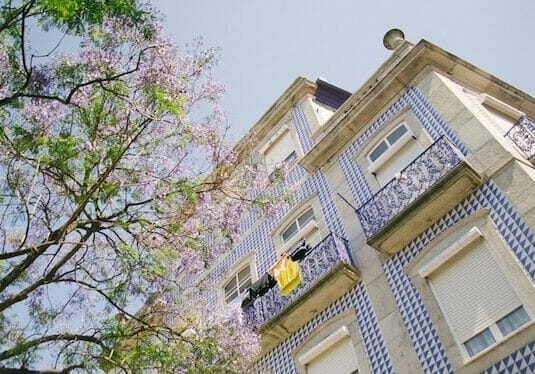


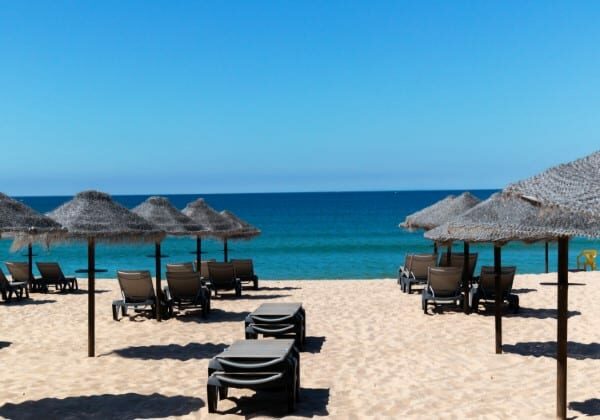

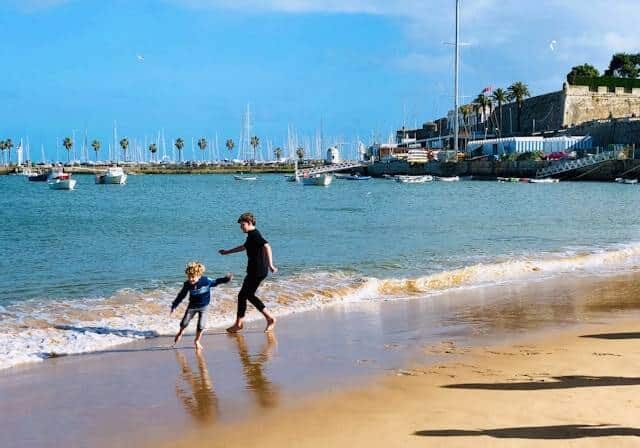
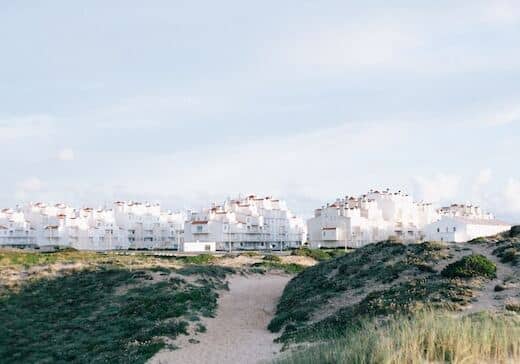
 NIF number: Tax identification number
NIF number: Tax identification number